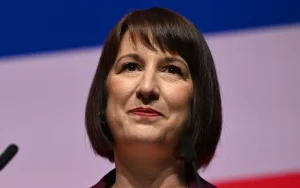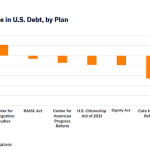
Sainsbury’s chief executive, Simon Roberts, has raised concerns that uncertainty surrounding potential tax increases is discouraging consumers from making significant purchases.
With Labour’s shadow Chancellor, Rachel Reeves, preparing her first Budget, which is expected to address the £22bn public finance gap, households are holding back amid fears of higher taxes.
Mr Roberts emphasised that customers were displaying increased caution in their spending, particularly on non-essential items, as they awaited more information on the Chancellor’s upcoming fiscal plans. He stated, “Households are inevitably seeking clarity about what’s going to happen next,” adding that greater transparency would be essential in restoring consumer confidence.
Ms Reeves is widely expected to introduce tax hikes in her forthcoming Budget, with speculation around possible increases in inheritance tax, capital gains tax, and reductions in tax relief for pension contributions. This uncertainty is contributing to a “continued caution in discretionary spending,” according to Mr Roberts, which is affecting sales of larger, non-essential goods.
In addition to calling for clarity on tax policies, Roberts stressed the importance of reducing mortgage costs to alleviate the financial strain on consumers. “We need to see interest rates continue to come down because that directly impacts household spending. I think clarity in the Budget, one way or another, is helpful,” he said.
The concerns raised by Sainsbury’s follow recent figures showing a drop in consumer confidence. The GfK index, a closely-watched measure, reported a seven-point fall in September, reflecting growing apprehension around rising costs and looming tax decisions. GfK attributed this decline to the end of winter fuel payments and warnings of further tough choices ahead in terms of taxes, spending, and welfare.
Sir Philip Hampton, a former chairman of Sainsbury’s, also voiced his opinion on the matter, urging politicians to adopt a more positive outlook to prevent further erosion of consumer and business confidence. “The more politicians are gloomy, of course, the more these sorts of animal instincts are going to be constrained,” he said.
This lack of confidence is not only affecting consumers but also impacting business investment. A recent report from S&P Global revealed that manufacturers’ confidence had fallen to a nine-month low, with many business leaders delaying major investment decisions until after the Budget.
Despite the economic uncertainty, Simon Roberts expressed optimism for the upcoming festive season. Sainsbury’s has enjoyed three consecutive strong Christmas trading periods and is preparing for another successful season this year. However, he acknowledged that political clarity would be critical in helping households navigate the challenging economic landscape.
Sainsbury’s is also continuing to strengthen its core grocery offering in the face of rising competition from discount rivals Aldi and Lidl. The supermarket has recently intensified its “food first” strategy, expanding its fresh food offerings and selling off its retail banking arm to NatWest earlier this year. In February, the retailer announced plans to strip £1bn in costs over the next three years, with savings directed towards lowering prices for customers and improving its balance sheet.
As the Budget approaches, the retail sector will be watching closely for the decisions that could shape the critical festive trading period and beyond.
Read more:
Uncertainty over tax rises impacting consumer spending, warns Sainsbury’s boss






